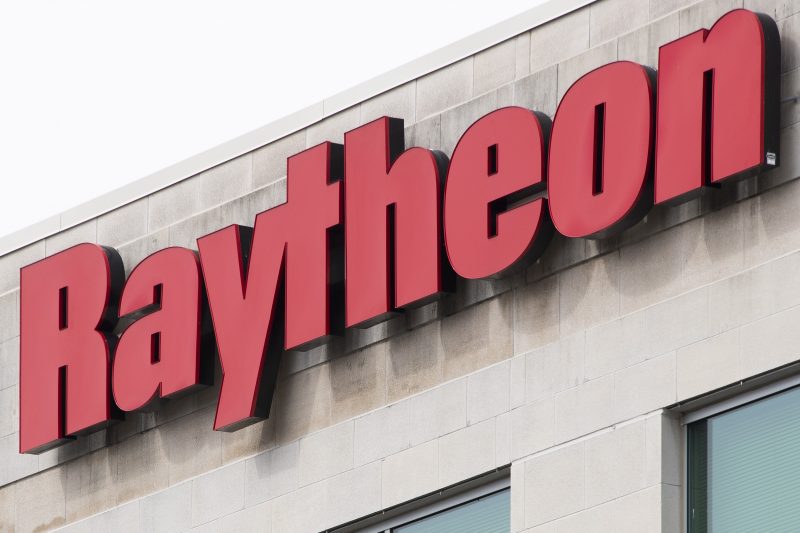United Technologies and Raytheon poised for merger
Raytheon and United Technologies, two major American aeronautics and defense groups, are poised to announce as early this week plans for a massive merger, according to US media (Jim WATSON)
Washington (AFP) – Raytheon and United Technologies, two major American aeronautics and defense groups, are poised to announce as early this week plans for a massive merger, according to US media.
The Wall Street Journal revealed on Saturday, citing an anonymous source, that talks have been under way between the two pillars of the aeronautics and defense industries worldwide.
The merger, which would take place solely through an exchange of shares, would create an enterprise with a market value of $168 billion. Unless the negotiations break down, a deal is expected to be announced in the coming days, a source close to the matter told the Journal.
Raytheon did not respond Sunday to queries from AFP. A spokeswoman for UTC, Michele Quintaglie, said she had no comment.
Raytheon is best known for its Patriot air defense systems, which gained fame during the first Gulf War, and its Tomahawk cruise missiles, often the first weapons fired from US navy ships in recent conflicts.
United Technologies is a big player in the aeronautics industry with its Pratt and Whitney engines, which are used in civil and military aircraft, including the F-35 multi-role fighter, considered one of the most advanced combat aircraft in the world.
– UTC Transformed –
This merger “among equals,” according to the Journal, would be carried out at the same time as United Technologies spins off its non-defense and aerospace enterprises, including such holdings as Otis elevators and Carrier air-conditioning and building systems.
Spinning off those assets, which employ about 500 people, should be completed by the end of the year, UTC indicated in its quarterly earnings report in April.
According to the Journal, they would become independent, publicly traded companies by the first quarter of 2020.
The UTC merger with Raytheon would transform the two companies into a single conglomerate with varied but well-established brands, each in the top tier of its specialty.
The Journal said UTC’s CEO Gregory Hayes, the merger’s architect, will assume the leadership of the new group, while Raytheon’s CEO, Thomas Kennedy, will become chairman of the board.
Hayes has led UTC since 2016 and oversaw the $23 billion acquisition of Rockwell Collins, another big name in the US defense and aeronautics sector.
Thanks in large part to Rockwell Collins, which became Collins Aerospace, UTC posted good results in the first quarter of 2019.
Collins Aerospace makes parts for aircraft engines, internal and external lighting for aircraft, seats, brakes, landing gear and pneumatic, hydraulic and electrical equipment. It also offers maintenance services for aircraft.
Rockwell Collins’ sales rose 71 percent to $6.51 billion in the first quarter of 2019.
During his presentation of the quarterly results, Hayes expressed optimism about the outlook for the rest of the year, stressing that the mix of civil and defense products had put UTC in a strong position.
– First among equals –
A UTC-Raytheon merger would create one of the biggest defense groups in the world, even if its $168 billion market capitalization based on Friday’s share prices is reduced by the coming UTC spinoffs.
Boeing was valued at $199 billion Friday, Lockheed Martin at $100 billion and Europe’s Airbus at 94 billion euros, or $104 billion.
In 2018, Raytheon had sales of $27 billion and earnings of a little less than $3 billion.
For its part, United Technologies posted sales of $66.5 last year, and earnings of $5.3 billion.
Disclaimer: Validity of the above story is for 7 Days from original date of publishing. Source: AFP.


